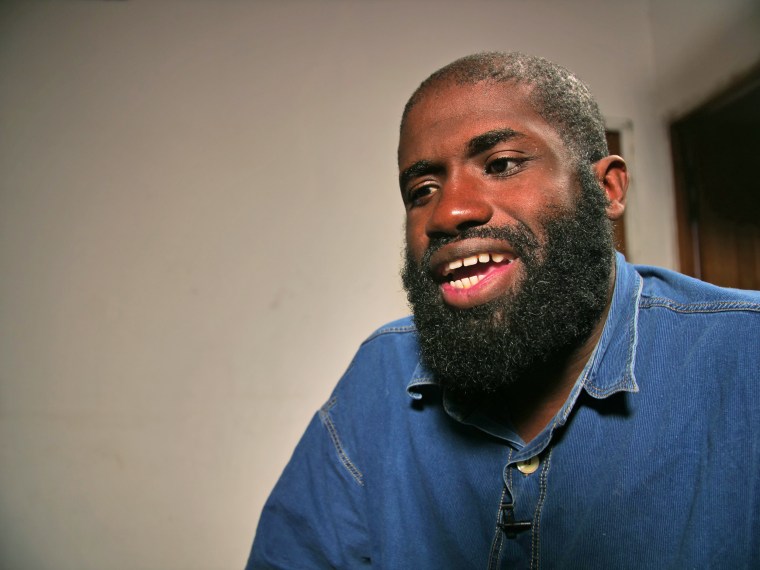Warren Christopher Clark, a Texas man recently captured with ISIS fighters in Syria, has been brought back to the U.S. by law enforcement and faces charges of aiding ISIS.
Clark was captured by the Syrian Democratic Forces, a largely Kurdish militia, who transferred him to U.S. custody this week. He was escorted back to Houston by law enforcement and faces a charge of attempting to provide material support to ISIS.
He arrived in Texas Thursday, and his indictment was unsealed Friday morning after his initial appearance in federal court in Houston. The charge of material support carries a possible penalty of up to 20 years in federal prison and a maximum $250,000 fine.
A former substitute teacher from Sugar Land, Texas, the 34-year-old is a Muslim convert who says he offered to work for ISIS teaching English but did not take up arms with the group.
Clark and another American were caught alongside two other foreign militants from Pakistan and a fifth from Dublin, Ireland, according to the Kurdish-led SDF. The alleged cell was said to have been attempting to attack civilians as they fled former ISIS strongholds.
After his capture, Clark was held in Kurdish custody for several weeks. He told Richard Engel of NBC News in an exclusive interview that he does not regret throwing in his lot with ISIS.
"I wanted to go see exactly what the group was about, and what they were doing," Clark said. "Of course I saw the videos. I think with the beheadings, that's execution. I'm from the United States, from Texas. They like to execute people, too. So I really don't see any difference. They might do it off camera, but it's the same."
Clark's resume was found at a house in Iraq and was later obtained by George Washington University's Program on Extremism. In a cover letter, Clark said he was hoping to obtain a job teaching English to students in territory seized by ISIS.
"I am looking to get a position teaching English to students in the Islamic State," read the cover letter, in which Clark used the alias Abu Muhammad al-Ameriki.
The resume included an email address, education credentials and work experience, and the George Washington University researchers were able to determine that Abu Muhammad was Clark — a University of Houston graduate.

